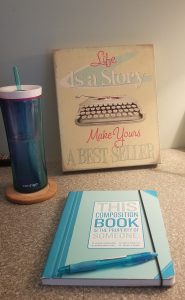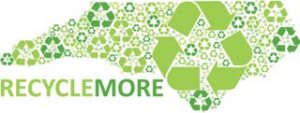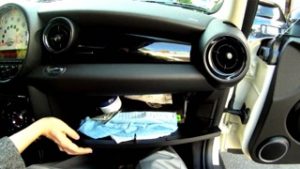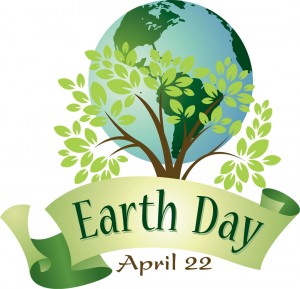By Adriane Weinberg, An Organized Approach, (215) 540 9401

Let’s admit it. We Americans have Too Much Stuff. And we don’t get rid of nearly enough. Reasons from clients include: it feels impersonal donating things to unknown people or they’re saving stuff for their kids (hey, your kids don’t want it). What if there were a way to give things away that feels good? There is! Buy Nothing groups.
The purpose of Buy Nothing Groups is to give away unwanted items, or request items that are wanted, for free. It’s based on the ancient practice of gift economies where people share and pool resources. The Buy Nothing Project started as a social experiment by two friends, Rebecca Rockefeller and Liesl Clark, in July 2013.
Groups are hyper-local and found on Facebook, which was chosen because it’s a free, widely used platform. The rules are simple. From their website, “Post anything you’d like to give away, lend, or share amongst neighbors. Ask for anything you’d like to receive for free or borrow. Keep it legal. No hate speech. No buying or selling, no trades or bartering, we’re strictly a gift economy.” Easy enough.
These ladies couldn’t have imagined that their little experiment would become a worldwide movement with 1.3 million users in 28 countries and 6,000 volunteers!
For more information or to find a Facebook group in your area, visit https://buynothingproject.org/. Rebecca and Liesl are currently crowdfunding to create a social media platform and app (https://www.soop.app/) to enhance “the power of shared abundance.” Their recently published book, The Buy Nothing, Get Everything Plan: Discover the Joy of Spending Less, Sharing More and Living Generously, shows people how to be a smarter shopper and get rid of things without adding to landfills.
On a related note, Buy Nothing Day is the Friday after Thanksgiving, aka Black Friday. It’s an international day of protest against overconsumption. This year, it’s Friday, November 27, if you’d like to participate.
I’m not anti-stuff. In fact, I have lots of stuff. My house isn’t cluttered, there’s ample space and I can find anything in seconds. For several years, a few years ago, I avoided shopping because I have what I need and much of what I want. I have enough. I don’t buy much anymore, unlike when I was acquiring things in my 20s, 30s and 40s. As a professional organizer, I know it’s about moderation and space. Everyone should do what feels right for their situation.
Many people lost jobs due to COVID-19. Buy Nothing Groups are a great way to save money. Or help neighbors save money by gifting things to them. Maybe you’ll be inspired to check out a Buy Nothing group.
We are in the midst of a heatwave here in Eastern PA. Today for example is 97°, with a feels like temp of 106°…ouch! Not the most conducive weather for organizing, right?
Well, definitely don’t work in the garage, or the attic…basically avoid anyplace that isn’t close to air conditioning or where heat rises. That still leaves some great spaces throughout your home to work in. However, before you even start, grab some ice-cold water or your favorite cold beverage and sit down to write out some to- do lists.
Nothing fancy, a spiral bound notebook from your child that still had useable pages in it will do; you know that they’ll want something brand new for the next school year anyway! I bought myself a fun notebook from TJ Maxx (see picture), in my favorite color, to make it less of a chore.

Prefer an app for your to-do lists? Trello is a fantastic app which lets you create endless topics (lists) and tasks (cards).
Start by writing the name of each room in your home on a separate page. The great thing about these lists is that they can be a summer and beyond project…no need to rush it! Next, start your brain dump, where you can write tasks to be done in each room. Write down what comes to mind and add more as you think of it. The tasks should be specific and therefore hopefully less overwhelming. It’s up to you to choose how many tasks you want to complete at a time!
For example:
Master Bedroom Closet Tops
Do you have other things come to mind, that aren’t specific to a room? Write them down too! Getting too much junk mail? Look to catalogchoice.org and optoutprescreen.com. Getting too many spam calls? Try an phone app like, Should I answer?, with a cute little octopus icon, which turns green for a positive call or red, to know instantly if a call has received negative ratings, and block them on your phone! I know, I know, once a company is blocked by using one number, they will move to another, but every little block counts!
Pen and paper or app, the key to dissolving a cluttered mind is to write things down, so that you have space in your brain for more important things to think about, like what flavor of ice cream to get tonight!
Spring is finally springing up all around us, daffodils are blooming and the forsythia is blossoming into that amazing yellow color.
Easter and Passover are a time of new beginnings. April is also the month we celebrate the earth. Earth Day began in Philadelphia in 1970 (Belmont Plateau anyone?). In the organizing and productivity industry, we consider every day Earth Day! When we work with clients on a home organizing project, we teach our clients about recycling. There is so much that we recycle to help preserve our earth. Here are some of the resources that we use to locate the most appropriate place to donate and recycle in our area:
However currently there is an abundance of stuff that people are getting rid of, they are very picky, so what you try to consign has to be in very good condition.
Depending on what you have there is usually an auction house or specialty sale that items can go to. When you sell at auction houses and consignment shops there is a fee usually between 30% and 50%.
 Most of us want to waste less and recycle more in an effort to take care of Planet Earth. However, the “who, what, when, where and how” can be confusing and foil our best intentions. This causes clutter in our homes and a pang of guilt in our minds.
Most of us want to waste less and recycle more in an effort to take care of Planet Earth. However, the “who, what, when, where and how” can be confusing and foil our best intentions. This causes clutter in our homes and a pang of guilt in our minds.
With Earth Day approaching, let’s make the effort to shred our papers, recycle outdated electronics, and collect and properly dispose of no longer needed or expired hazardous household products and prescriptions. Below are many useful links to spring you into action:
GREATER PHILADELPHIA AREA:
Check counties below for local recycling information and upcoming hazardous waste and shredding events in your area:
Unused Medication:
Electronic Recycling:
Community Shredding Events:
The Pennsylvania Department of Environmental Protections provides information and resources for Recycling & Disposal Programs in our area. Tips for handling composting, motor oil, tires, electronics, waste reduction, drug take-back programs, and household hazardous waste are also offered.
NEW JERSEY:
The New Jersey Department of Environmental Protection’s Recycling website will answer most of your recycling questions. Find out what upcoming events are happening in your area by clicking on “Your County’s Recycling” page.
Unused Medications:
Electronics:
DELAWARE:
The Delaware Solid Waste Authority covers all of your recycling and disposal questions in their handy and easy to follow website. You will want to bookmark this one!
Unused Medications:
The benefits of recycling help your environment, your community, your home and you!
“Recycling turns things into other things. Which is like MAGIC!”
-Author Unknown
 When was the last time you took everything out of the trunk and off of the floor of your car and really explored what is hanging out in there? Maybe you have some store returns to make that happen to be intermixed with fallen French fries, sticky soda bottles and stinky gym shoes…ick. It sounds like a scenario for those Febreze Car Fresheners!
When was the last time you took everything out of the trunk and off of the floor of your car and really explored what is hanging out in there? Maybe you have some store returns to make that happen to be intermixed with fallen French fries, sticky soda bottles and stinky gym shoes…ick. It sounds like a scenario for those Febreze Car Fresheners!
On the next nice day when you can dedicate a few hours, head out to your car and follow these simple steps.
1) Remove EVERYTHING – Yes, I said everything! First, take out the bigger items from the floor and then the stuff from your glove compartment, center console, door pockets and trunk. Don’t forget to look in all those other nifty hidden compartments, as well. For now, keep these items in neat (or as neat as possible) piles in your garage, on the patio or in shopping bags.
2) Clean – Clean your interior windows including the front windshield, the rear window and the gauges. Next, dust and clean your dashboard. Finally, vacuum the floors and seats. If you haven’t done this process in a while, you may just prefer to head to the car wash and let them take care of it for you. A good car wash may be something worthwhile to get rid of that pesky pollen…achoo!
3) Trash/Recycle – Get a trash bag as well as another bag for recycling. Toss any items that are trash, like those fries! Recycle any maps or papers that aren’t needed, like expired car registration or insurance documents, soda cans and water bottles.
4) Sort – Go through the rest of the items and decide where they need to go, whether it is back in the car or into your house.
5) Organize – Keep some fabric storage bins with handles in your trunk and on the backseat. They are inexpensive and can surprisingly hold a lot. Five bins should be enough; you don’t want to fill up your entire car with them.
6) Maintain – Whenever you stop for gas, pop out the trash bag and toss it. Save the recycling items to take home if you don’t see a recycling bin. Keep some additional plastic grocery bags folded flat on the bottom of each bin.
7) Rejoice! – Look inside your newly cleaned car and get ready for those road trips. Then take a whiff. If it still stinks, quickly proceed to the nearest store and buy yourself an air freshener!
Happy travels wherever you are headed, near or far!
Click on the title above to learn more about the featured author.
 Every time I enter a client’s home, I’m reminded of the sheer amount of stuff with which we surround ourselves. Does our stuff make our lives better or more difficult? And, what happens to all of the stuff we don’t want?
Every time I enter a client’s home, I’m reminded of the sheer amount of stuff with which we surround ourselves. Does our stuff make our lives better or more difficult? And, what happens to all of the stuff we don’t want?
Most clients try to recycle as much as they can, but the truth is, much of what is donated ends up in the dump. Just this week, I was at a baby shower and the mother-to-be received so many gifts, she remarked they would need a storage unit. She wasn’t kidding.
April 22nd is Earth Day and a great opportunity to reflect on the world we would like to leave to our children and grandchildren. Take a look at the road sides as you drive around this month. Few places don’t have plastic bags blowing in the limbs of the trees and litter strewn about. While we need things to live, conduct business and improve our quality of life, do we want to leave a legacy of trash for the next generation?
Water bottles are a scourge on our earth and resources. According to Ban the Bottle, “Americans used about 50 billion plastic water bottles last year. However, the U.S.’s recycling rate for plastic is only 23 percent, which means 38 billion water bottles – more than $1 billion worth of plastic – are wasted each year.” The EPA estimates that 75% of the American waste stream is recyclable, but we only recycle about 30% of it and The Recycling Coalition of Utah states that “Americans represent 5% of the world’s population, but generate 30% of the world’s garbage.”
How can we stop burying ourselves and our loved ones in garbage?
Happy Earth Day!